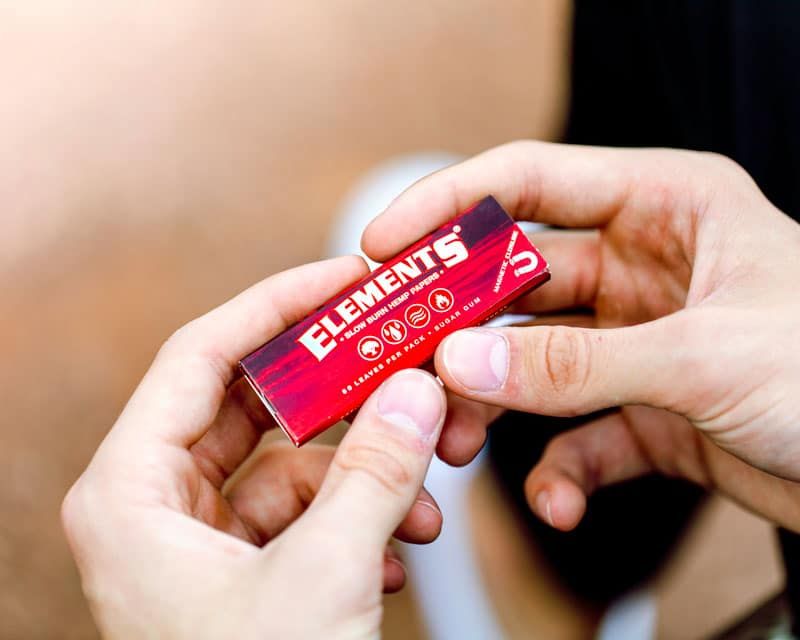What is a joint? In layman terms, a joint is simply cannabis rolled in such a way that it resembles a cigarette. Joints are arguably the most common form of consuming cannabis – mostly because of how easy it is to roll one and their portability. You can easily get away with carrying a joint everywhere that deems it legal.
How to Roll a Perfect Joint
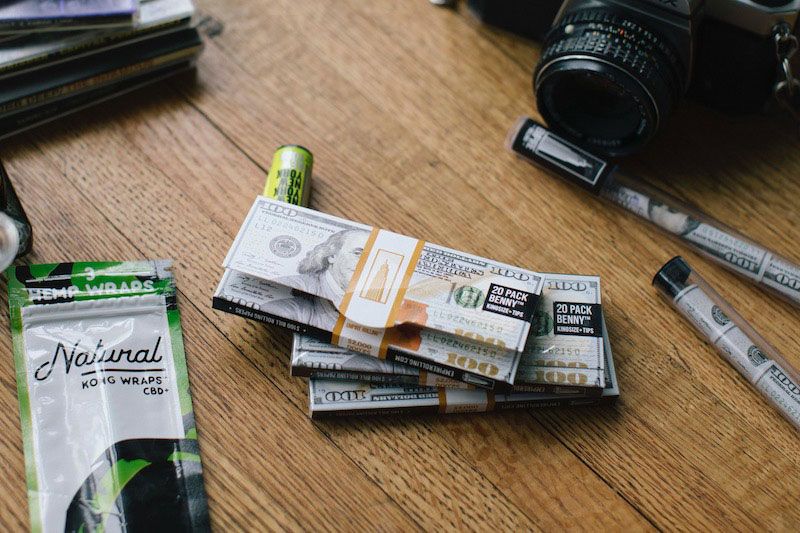
To make a joint, a user spreads a strip of ground cannabis onto a cigarette rolling paper that is twisted to assume a cone-shaped form. Afterwards, they apply saliva or water on the gum-like side of the rolling paper to seal the contents. Both or one end should have some seal to prevent the contents from falling off. Many use a filter as it promises a lighter smoking experience. It also makes it possible to smoke your joint to the very end without burning your fingers.
Today, tech advancements have made the work easier for cannabis lovers who would like to roll their joints faster and more neatly. Automatic smart rolling machines such as the Banana Bros. OTTO Grinder help users to transform bud to joint within mere seconds. They deliver perfect rolls by mimicking human hand grinding gestures and ensuring content is ground to precision.
Difference Between a Joint, Spiff and a Blunt
The majority of the population is under the assumption that a joint, spliff, and blunt are the same. In as much as they share very many properties, they’re all distinctively different. Here is a small breakdown to help you differentiate the three;
Joint– It consists of pure cannabis that has been rolled using plain or fruit-flavored wraps. The wraps/rolling paper can either be made from rice, hemp, or paper, and it comes in either white or brown color.
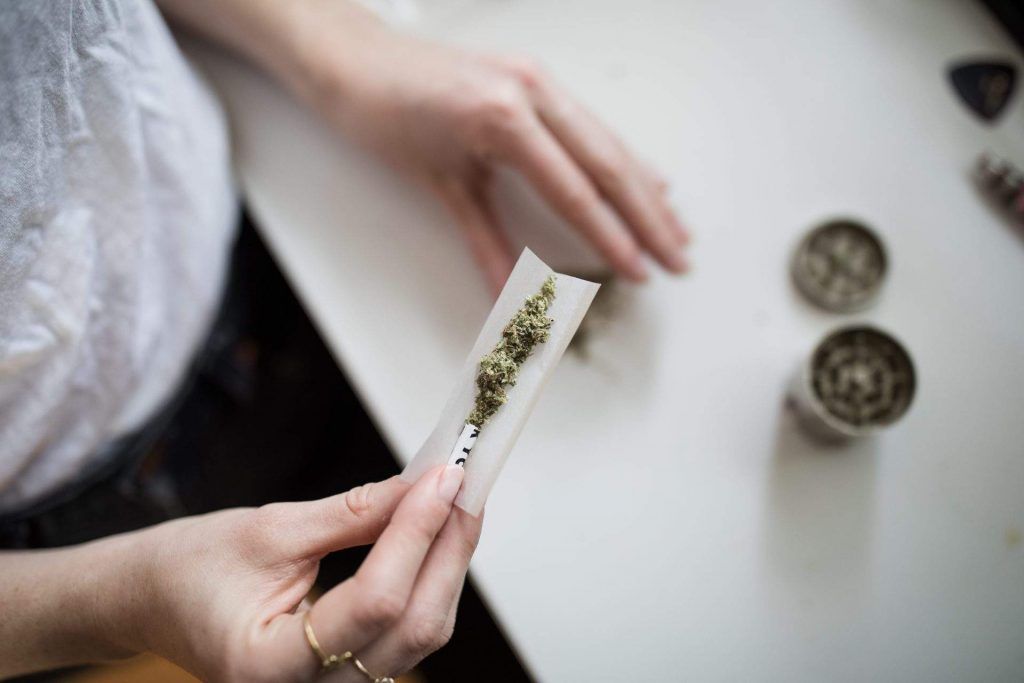
Spliff– A spliff shares all the aspects of a blunt other than the fact that it’s not pure. To roll a spliff, one needs to mix a small part of cannabis with tobacco or vice versa. It was said to give the smokers the best of both worlds; hence, it rose in popularity pretty quickly in the ’80s.
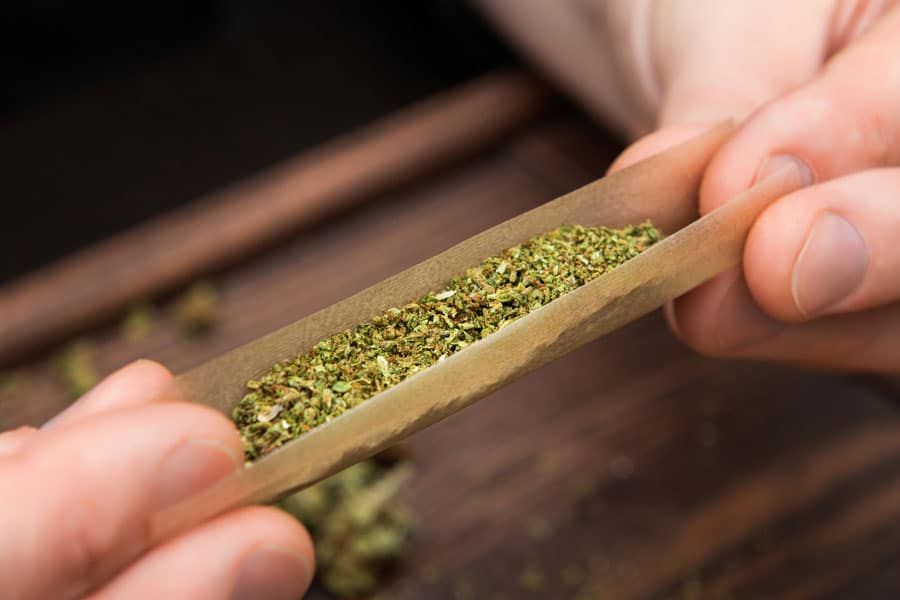
Blunts– A blunt is cannabis that has been rolled in a cigar wrap or as popularly known, a blunt wrap. The wrap is different from the one used for joints and spliffs because it’s made purely of tobacco. This way, the smoker gets a hint of tobacco flavor to accompany their cannabis. Perfect for non-cigarette smokers who needed an extra kick.
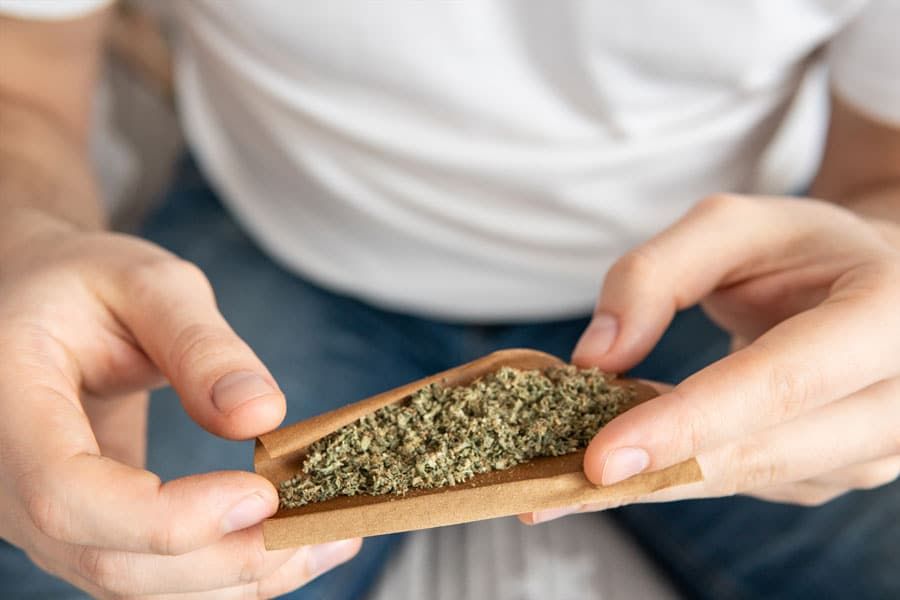
Origin of the Term ‘Joint’
The term ‘joint’ originated from ancient France, where it’s an adjective used to refer to something that’s adjoined (Joinder). It was then adopted by the Anglo-Irish to mean a smaller room joined to the main room. Consecutively, it was picked up by the Americans to refer to a place where people smoked cigarettes. It is from there that the term was used in conjunction with what we associate it today- rolled marijuana.
How Did Rolling Papers Come to Be?
Surprisingly, cannabis rolling papers came to be long before the joint was even imagined. It all started when Spanish aristocrats would visit Mexico and carry huge cigars with them. By then, the sale of Tobacco in Europe was lucrative as cigars/cigarettes were only reserved for the wealthy. The aristocrats had a habit of throwing unfinished cigars all over wherever they went.
The poverty-stricken people of Mexico would then collect the unfinished butts so they could have a taste of what the Aristocrats were having. They would cut open several butts and empty just enough to form a full cigar. Afterward, they would roll the contents with a newspaper and smoke it. When the Spanish saw this, they seized the market opportunity and started producing rolling papers. They were not only healthier than newspapers, but they burnt slower hence giving the smoker more time to enjoy the process. Typically, the rolling papers hit the market with a buzz.

To date, Spain remains to be the home of the most prominent rolling paper companies. The companies produce brands such as RAW, Elements, Juicy Jay’s and DLX, and you can find them all on our store. Interestingly, they claim to use the same formulae and processes that they did when they were starting.
Today, there are many variations of sizes and thicknesses of rolling papers such as the classic, one, and a quarter, and the king size. Modern companies have also revolutionized ways of rolling joints by by producing pre-rolled cones.
Nowadays, discerning cannabis connoisseurs have more options than you can count to customize their user experience. Consumers can choose any strains from the vast species available, treat themselves to unique papers, and even purchase power-packed pre-rolls. Thanks to the internet, we’re starting to see incredible art emerging from professional joint rollers.
History of Cannabis
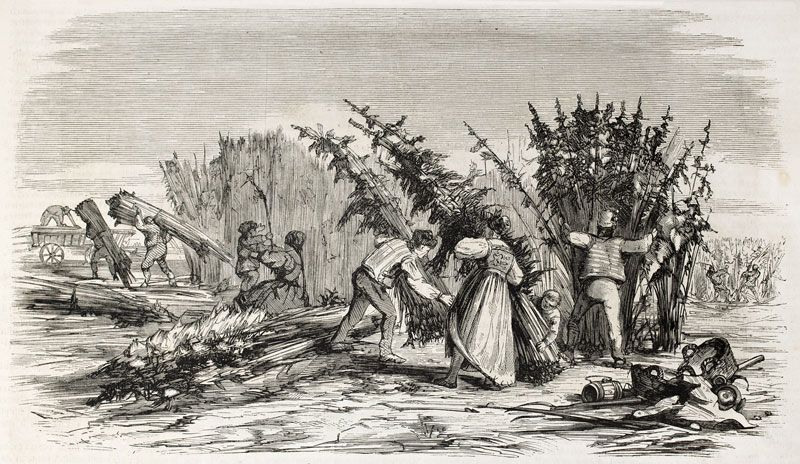
After several years of rolling papers being in existence, the joint finally came to be. The first-ever officially recorded use of marijuana was in the 1900’s. However, it’s believed that cannabis had been in existence for longer than that to the tune of the 1800’s. The first case was reported by a pharmacist from the University of Guadalajara. He was conducting a study on the Mexican laborers when he noticed that they would often mix cannabis with cigarettes. But as we said in the segment above, that was not a joint but rather a spliff.
The second time cannabis came to play was when a company called Grimault started marketing something called- Grimault’s Indian cigarettes. These were a mixture of cannabis, belladonna leaves, and potassium nitrate. The company claimed the cigarettes were to be used to relieve respiratory diseases such as asthma. But as studies show today, this was a deadly combination that caused more harm than good.
Evolution of Cannabis
Cannabis joints started rising in popularity in the 20th century. This was after a famous black rastafarian took to the streets to educate the masses about this precious herb. More and more musicians picked it up, especially those who played jazz as that was the most famous music in those times. They claimed smoking joints helped their creative process without affecting their motor control.
In the 1920’s there was an alcohol ban which caused panic among those who were used to being high. This was when the popularity of cannabis boomed. Since then, studies have been conducted to show what marijuana is and how it affects the body’s normal functions.
Most of the studies turned out positive reviews hence its legalization in most states in the U.S. and various parts of the world where a viper (the term referring to a cannabis smoker) could roll a joint in public and face no repercussions.
Like it is with everything else, some people and countries had their reservations with cannabis use. After a series of increased restrictions, the Marijuana Tax Act of 1937 was passed, essentially allowing possession of cannabis and selling of its trees.
Summary
The history of joint rolling makes us appreciate anyone handy enough to roll a joint. Some users have been innovative and now use bamboo to have a tied paper on the top, making it resemble a flag for rolling a joint or using a pen.
Joints are a perfect representation of the rich cannabis culture, and one can use any method to roll a joint and enjoy it. Check out our wide selection of rolling papers today to help with your adventure.

